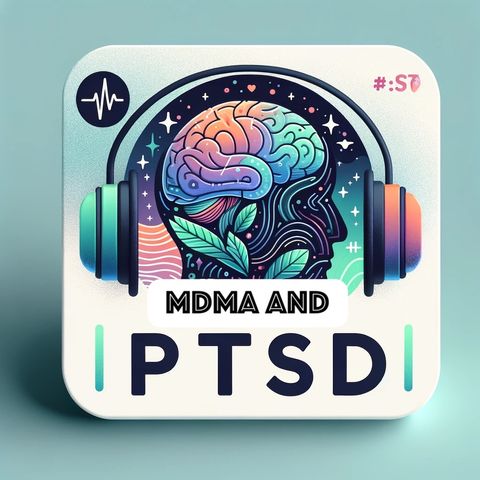MDMA and PTSD

Sign up for free
Listen to this episode and many more. Enjoy the best podcasts on Spreaker!
Download and listen anywhere
Download your favorite episodes and enjoy them, wherever you are! Sign up or log in now to access offline listening.
MDMA and PTSD
This is an automatically generated transcript. Please note that complete accuracy is not guaranteed.
Description
MDMA: A Promising New Approach to Treating Post-Traumatic Stress DisorderPost-traumatic stress disorder (PTSD) is a debilitating mental health condition that affects millions of people worldwide. Characterized by intense, distressing memories,...
show moreThe use of MDMA in the treatment of PTSD has been the subject of several clinical trials in recent years. In a landmark study published in the Journal of Psychopharmacology in 2010, researchers found that MDMA-assisted psychotherapy was effective in reducing PTSD symptoms in a majority of participants. The study involved 20 individuals with chronic, treatment-resistant PTSD who underwent two eight-hour psychotherapy sessions, during which they received either MDMA or a placebo. At the end of the study, 83% of participants in the MDMA group no longer met the diagnostic criteria for PTSD, compared to just 25% in the placebo group.
Since then, several other studies have replicated these findings, suggesting that MDMA-assisted psychotherapy may be a promising new approach to treating PTSD. In 2017, the U.S. Food and Drug Administration (FDA) granted "breakthrough therapy" status to MDMA for the treatment of PTSD, which could accelerate its development and approval as a prescription medication.
One of the key advantages of MDMA-assisted psychotherapy is that it appears to be effective in treating PTSD even in individuals who have not responded to other treatments. Many people with PTSD struggle with emotional numbing and avoidance, which can make it difficult for them to engage in traditional talk therapy. MDMA's ability to increase emotional openness and decrease fear may help these individuals confront and process their traumatic memories in a safe and supportive environment.
However, it is important to note that MDMA is not a standalone treatment for PTSD. The drug is used in the context of psychotherapy, and its effects are thought to be primarily due to its ability to enhance the therapeutic process. MDMA-assisted psychotherapy typically involves several sessions, during which patients receive the drug and engage in guided therapy with a trained mental health professional. The therapy sessions are designed to help patients process traumatic memories, develop coping skills, and build a sense of safety and trust.
While the use of MDMA in the treatment of PTSD is still experimental, the results so far are promising. If approved as a prescription medication, MDMA could offer hope to the millions of people worldwide who struggle with PTSD and have not found relief through other treatments. However, more research is needed to fully understand the long-term effects of MDMA and to determine the optimal dosing and treatment protocols.
It is also worth noting that MDMA is currently a Schedule I drug in the United States, meaning that it has a high potential for abuse and no accepted medical use. As research on the therapeutic potential of MDMA continues, there may be a push to reclassify the drug to allow for its use in medical settings.
In conclusion, MDMA-assisted psychotherapy represents a promising new approach to treating PTSD, particularly in individuals who have not responded to other treatments. While more research is needed to fully understand the risks and benefits of this approach, the results so far suggest that it could offer hope and healing to the millions of people worldwide who struggle with this debilitating condition. As we continue to explore new and innovative treatments for mental health conditions, it is important to keep an open mind and to prioritize the well-being and recovery of those who are suffering.
Information
| Author | QP-4 |
| Organization | William Corbin |
| Website | - |
| Tags |
Copyright 2024 - Spreaker Inc. an iHeartMedia Company
